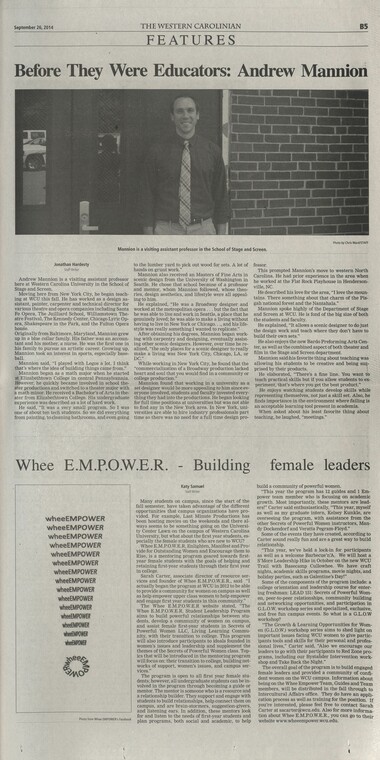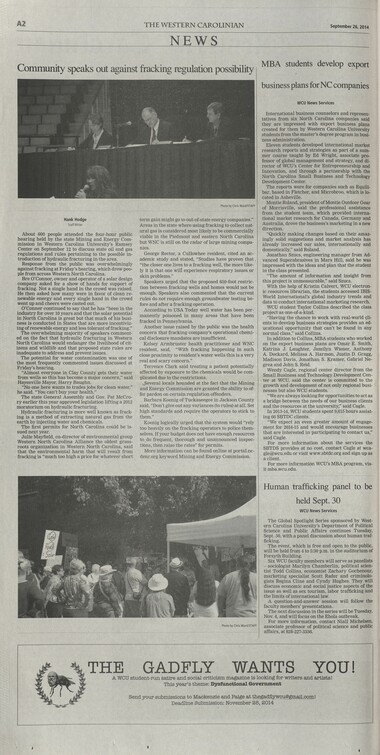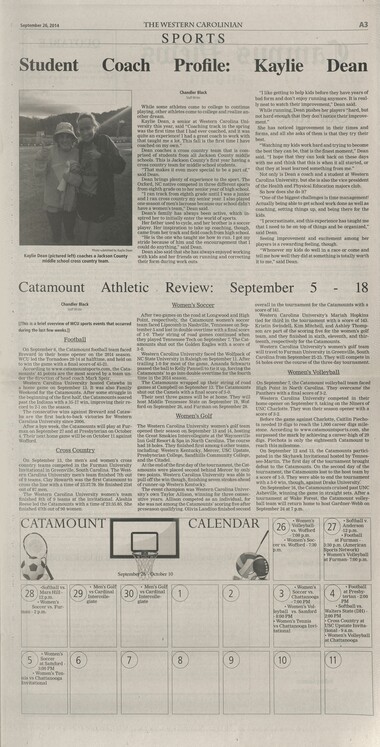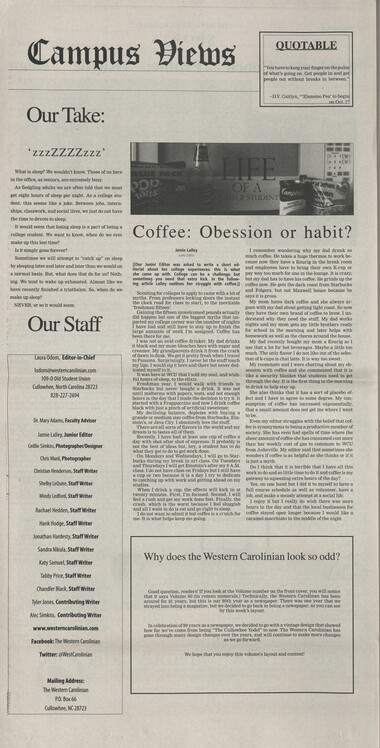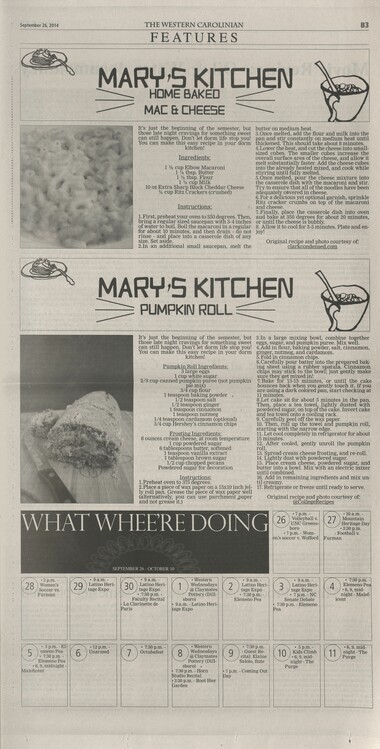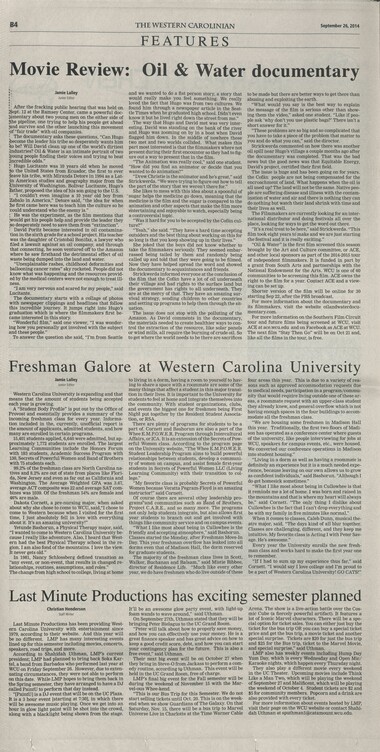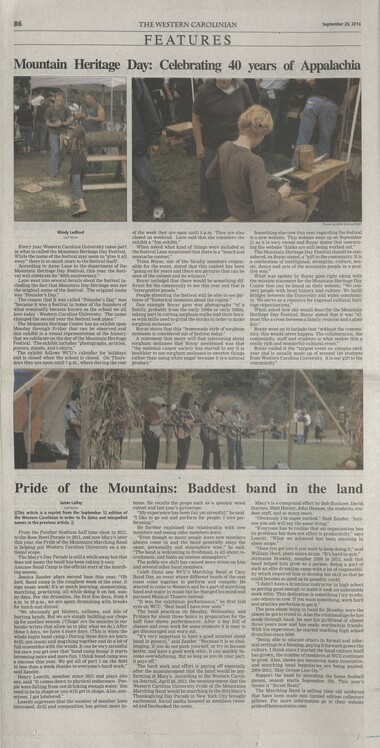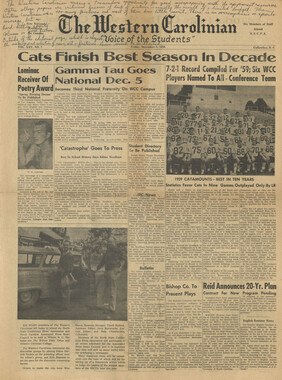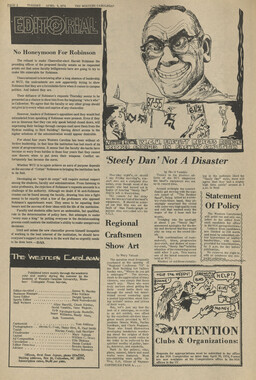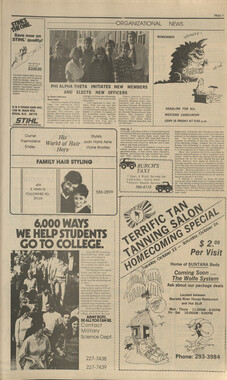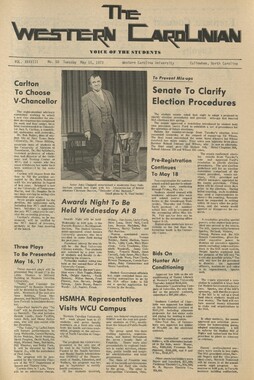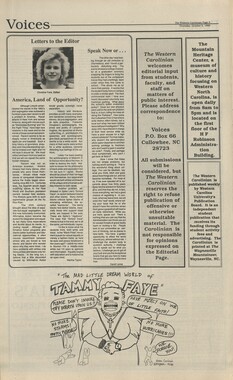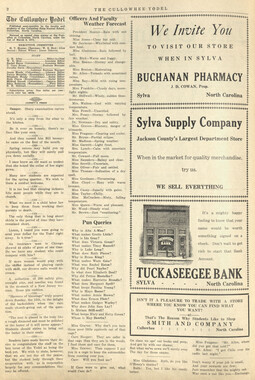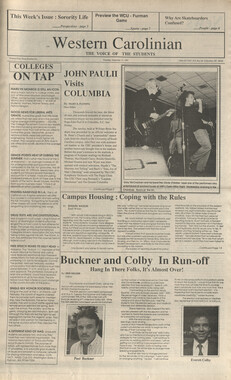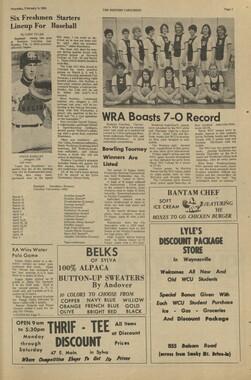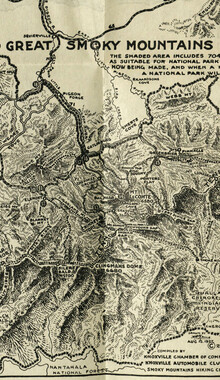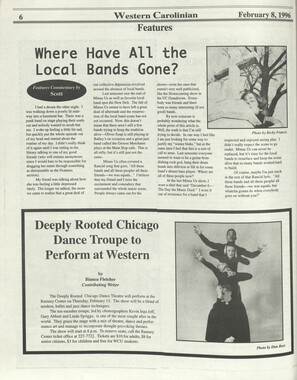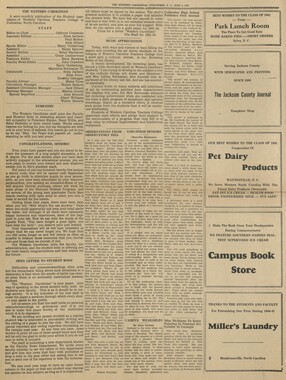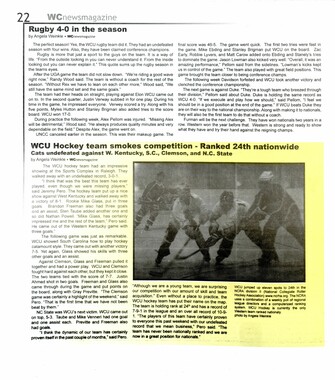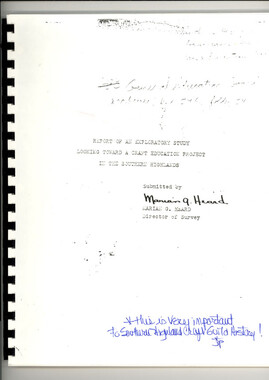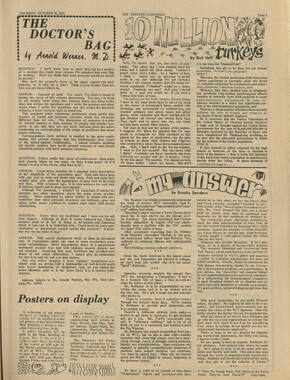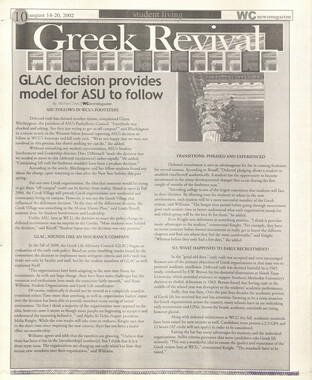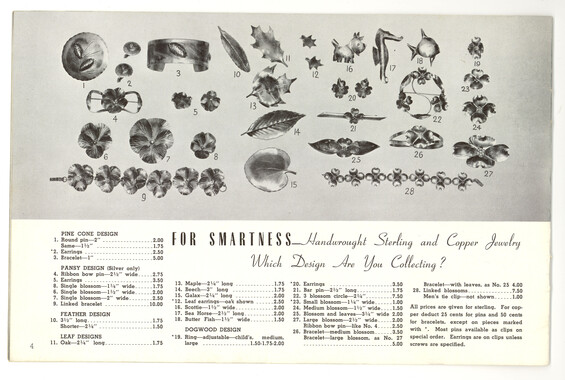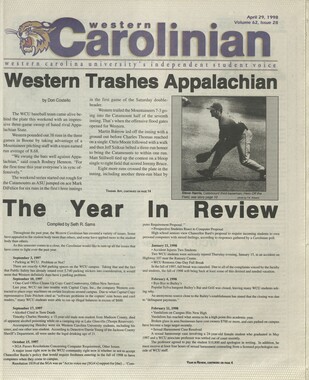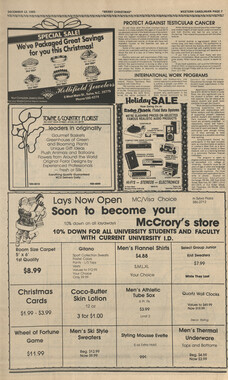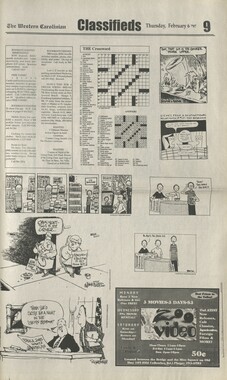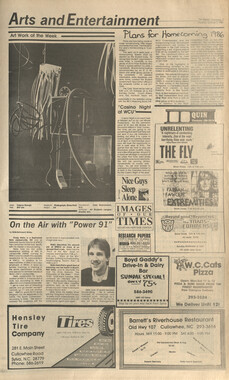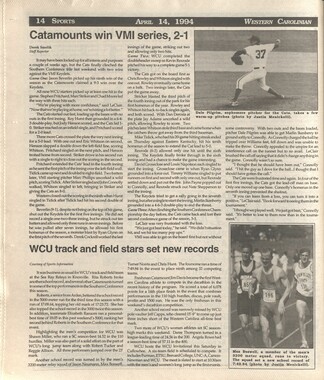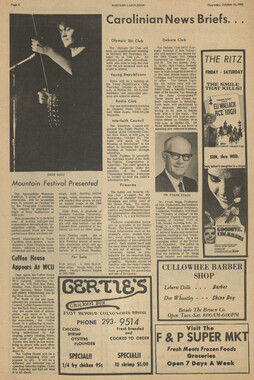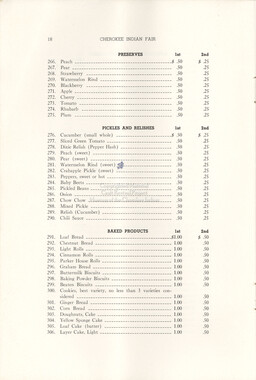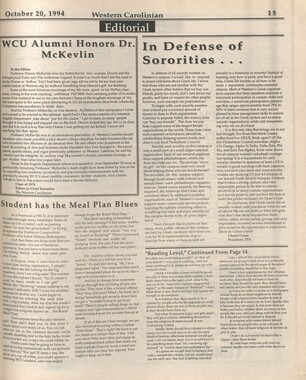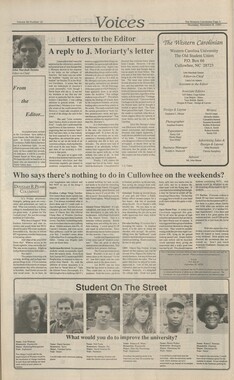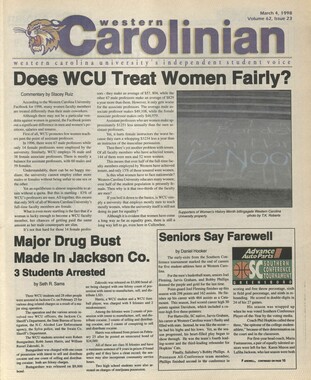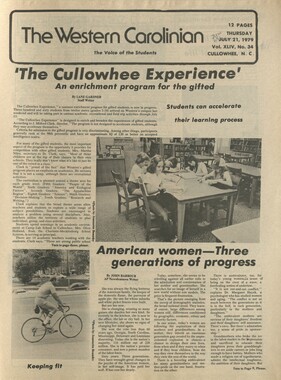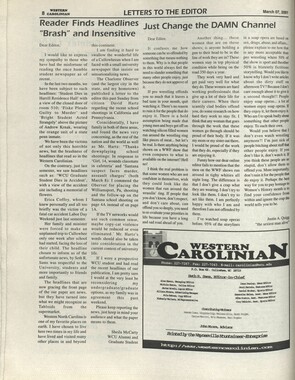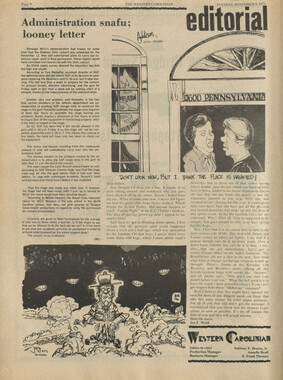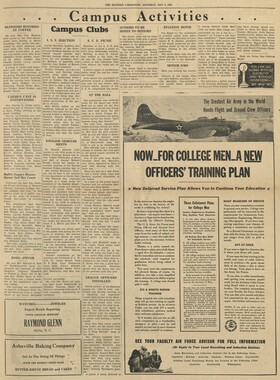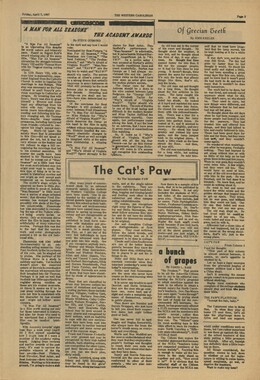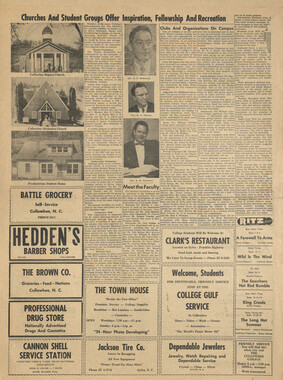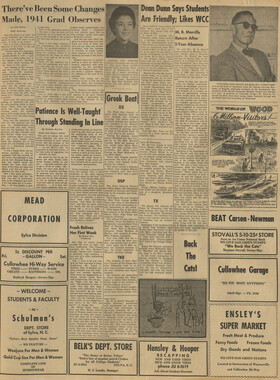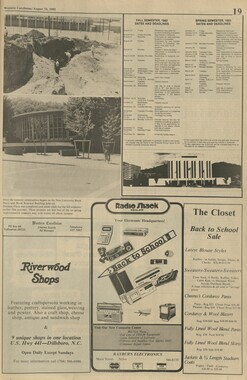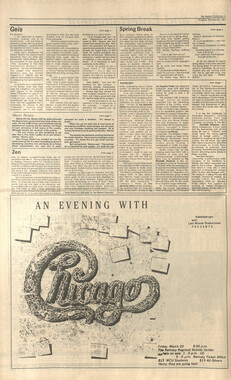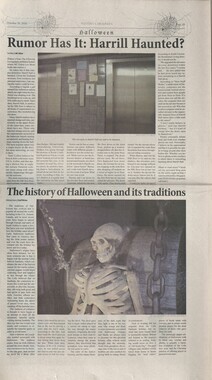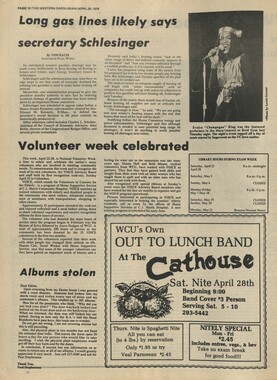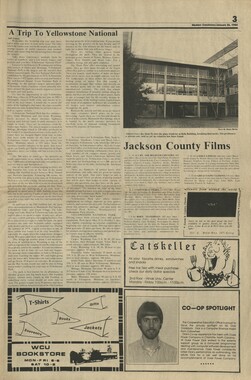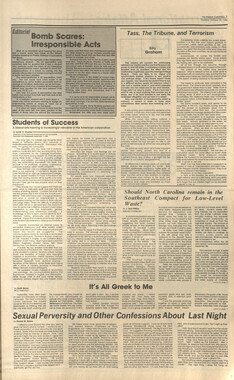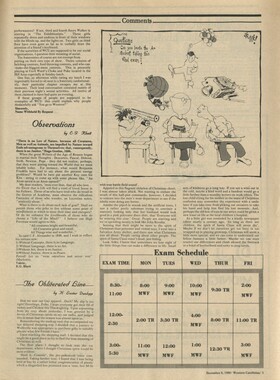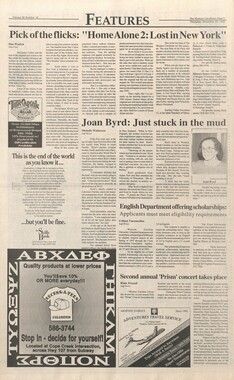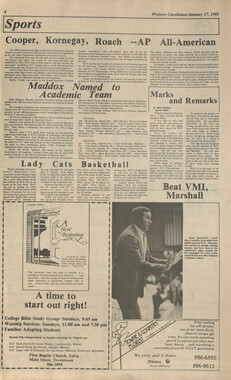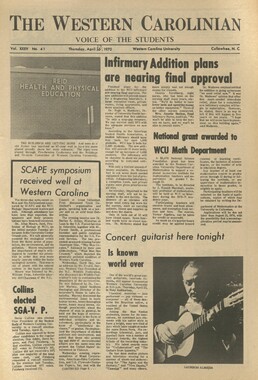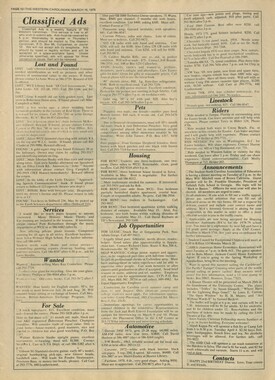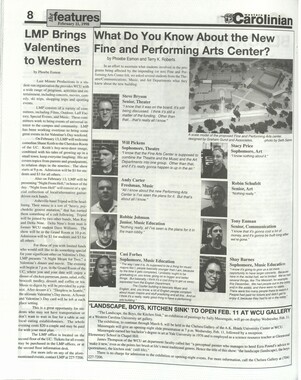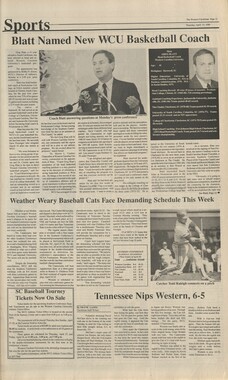Western Carolina University (21)
View all
- Canton Champion Fibre Company (2308)
- Cherokee Traditions (291)
- Civil War in Southern Appalachia (165)
- Craft Revival (1942)
- George Masa Collection (137)
- Great Smoky Mountains - A Park for America (3080)
- Highlights from Western Carolina University (422)
- Horace Kephart (973)
- Journeys Through Jackson (159)
- LGBTQIA+ Archive of Jackson County (89)
- Oral Histories of Western North Carolina (318)
- Picturing Appalachia (6617)
- Stories of Mountain Folk (413)
- Travel Western North Carolina (153)
- Western Carolina University Fine Art Museum Vitreograph Collection (129)
- Western Carolina University Herbarium (92)
- Western Carolina University: Making Memories (738)
- Western Carolina University Publications (2491)
- Western Carolina University Restricted Electronic Theses and Dissertations (146)
- Western North Carolina Regional Maps (71)
- World War II in Southern Appalachia (131)
University of North Carolina Asheville (6)
View all
- Allanstand Cottage Industries (62)
- Appalachian National Park Association (53)
- Bennett, Kelly, 1890-1974 (1463)
- Berry, Walter (76)
- Brasstown Carvers (40)
- Carver, George Washington, 1864?-1943 (26)
- Cathey, Joseph, 1803-1874 (1)
- Champion Fibre Company (233)
- Champion Paper and Fibre Company (297)
- Cherokee Indian Fair Association (16)
- Cherokee Language Program (22)
- Crowe, Amanda (40)
- Edmonston, Thomas Benton, 1842-1907 (7)
- Ensley, A. L. (Abraham Lincoln), 1865-1948 (275)
- Fromer, Irving Rhodes, 1913-1994 (70)
- George Butz (BFS 1907) (46)
- Goodrich, Frances Louisa (120)
- Grant, George Alexander, 1891-1964 (96)
- Heard, Marian Gladys (60)
- Kephart, Calvin, 1883-1969 (15)
- Kephart, Horace, 1862-1931 (313)
- Kephart, Laura, 1862-1954 (67)
- Laney, Gideon Thomas, 1889-1976 (439)
- Masa, George, 1881-1933 (61)
- McElhinney, William Julian, 1896-1953 (44)
- Niggli, Josephina, 1910-1983 (10)
- North Carolina Park Commission (105)
- Osborne, Kezia Stradley (9)
- Owens, Samuel Robert, 1918-1995 (11)
- Penland Weavers and Potters (36)
- Roberts, Vivienne (15)
- Roth, Albert, 1890-1974 (142)
- Schenck, Carl Alwin, 1868-1955 (1)
- Sherrill's Photography Studio (2565)
- Southern Highland Handicraft Guild (127)
- Southern Highlanders, Inc. (71)
- Stalcup, Jesse Bryson (46)
- Stearns, I. K. (213)
- Thompson, James Edward, 1880-1976 (226)
- United States. Indian Arts and Crafts Board (130)
- USFS (683)
- Vance, Zebulon Baird, 1830-1894 (1)
- Weaver, Zebulon, 1872-1948 (58)
- Western Carolina College (230)
- Western Carolina Teachers College (282)
- Western Carolina University (2008)
- Western Carolina University. Mountain Heritage Center (18)
- Whitman, Walt, 1819-1892 (10)
- Wilburn, Hiram Coleman, 1880-1967 (73)
- Williams, Isadora (3)
- Cain, Doreyl Ammons (0)
- Crittenden, Lorraine (0)
- Rhodes, Judy (0)
- Smith, Edward Clark (0)
- Appalachian Region, Southern (3032)
- Asheville (N.C.) (1945)
- Avery County (N.C.) (26)
- Blount County (Tenn.) (195)
- Buncombe County (N.C.) (1680)
- Cherokee County (N.C.) (283)
- Clay County (N.C.) (556)
- Graham County (N.C.) (238)
- Great Smoky Mountains National Park (N.C. and Tenn.) (525)
- Haywood County (N.C.) (3573)
- Henderson County (N.C.) (70)
- Jackson County (N.C.) (4925)
- Knox County (Tenn.) (35)
- Knoxville (Tenn.) (13)
- Lake Santeetlah (N.C.) (10)
- Macon County (N.C.) (421)
- Madison County (N.C.) (216)
- McDowell County (N.C.) (39)
- Mitchell County (N.C.) (135)
- Polk County (N.C.) (35)
- Qualla Boundary (982)
- Rutherford County (N.C.) (78)
- Swain County (N.C.) (2185)
- Transylvania County (N.C.) (270)
- Watauga County (N.C.) (12)
- Waynesville (N.C.) (86)
- Yancey County (N.C.) (72)
- Aerial Photographs (3)
- Aerial Views (60)
- Albums (books) (4)
- Articles (1)
- Artifacts (object Genre) (228)
- Bibliographies (1)
- Biography (general Genre) (2)
- Cards (information Artifacts) (38)
- Clippings (information Artifacts) (192)
- Copybooks (instructional Materials) (3)
- Crafts (art Genres) (622)
- Depictions (visual Works) (21)
- Design Drawings (1)
- Digital Moving Image Formats (2)
- Drawings (visual Works) (185)
- Envelopes (101)
- Exhibitions (events) (1)
- Facsimiles (reproductions) (1)
- Fiction (general Genre) (4)
- Financial Records (12)
- Fliers (printed Matter) (67)
- Glass Plate Negatives (381)
- Guidebooks (2)
- Internegatives (10)
- Interviews (823)
- Land Surveys (102)
- Letters (correspondence) (1045)
- Manuscripts (documents) (618)
- Maps (documents) (177)
- Memorandums (25)
- Minutes (administrative Records) (59)
- Negatives (photographs) (6090)
- Newsletters (1290)
- Newspapers (2)
- Notebooks (8)
- Occupation Currency (1)
- Paintings (visual Works) (1)
- Pen And Ink Drawings (1)
- Periodicals (194)
- Personal Narratives (10)
- Photographs (12977)
- Plans (maps) (1)
- Poetry (6)
- Portraits (4568)
- Postcards (329)
- Programs (documents) (181)
- Publications (documents) (2444)
- Questionnaires (65)
- Relief Prints (26)
- Sayings (literary Genre) (1)
- Scrapbooks (282)
- Sheet Music (2)
- Slides (photographs) (402)
- Songs (musical Compositions) (2)
- Sound Recordings (802)
- Specimens (92)
- Speeches (documents) (18)
- Tintypes (photographs) (8)
- Transcripts (329)
- Text Messages (0)
- A.L. Ensley Collection (275)
- Appalachian Industrial School Records (7)
- Appalachian National Park Association Records (336)
- Axley-Meroney Collection (2)
- Bayard Wootten Photograph Collection (20)
- Bethel Rural Community Organization Collection (7)
- Blumer Collection (5)
- C.W. Slagle Collection (20)
- Canton Area Historical Museum (2110)
- Carlos C. Campbell Collection (462)
- Cataloochee History Project (64)
- Cherokee Studies Collection (4)
- Daisy Dame Photograph Album (5)
- Daniel Boone VI Collection (1)
- Doris Ulmann Photograph Collection (112)
- Elizabeth H. Lasley Collection (1)
- Elizabeth Woolworth Szold Fleharty Collection (4)
- Frank Fry Collection (95)
- George Masa Collection (173)
- Gideon Laney Collection (452)
- Hazel Scarborough Collection (2)
- Hiram C. Wilburn Papers (28)
- Historic Photographs Collection (236)
- Horace Kephart Collection (861)
- Humbard Collection (33)
- Hunter and Weaver Families Collection (1)
- I. D. Blumenthal Collection (4)
- Isadora Williams Collection (4)
- Jesse Bryson Stalcup Collection (47)
- Jim Thompson Collection (224)
- John B. Battle Collection (7)
- John C. Campbell Folk School Records (80)
- John Parris Collection (6)
- Judaculla Rock project (2)
- Kelly Bennett Collection (1482)
- Love Family Papers (11)
- Major Wiley Parris Civil War Letters (3)
- Map Collection (12)
- McFee-Misemer Civil War Letters (34)
- Mountain Heritage Center Collection (4)
- Norburn - Robertson - Thomson Families Collection (44)
- Pauline Hood Collection (7)
- Pre-Guild Collection (2)
- Qualla Arts and Crafts Mutual Collection (12)
- R.A. Romanes Collection (681)
- Rosser H. Taylor Collection (1)
- Samuel Robert Owens Collection (94)
- Sara Madison Collection (144)
- Sherrill Studio Photo Collection (2558)
- Smoky Mountains Hiking Club Collection (616)
- Stories of Mountain Folk - Radio Programs (374)
- The Reporter, Western Carolina University (510)
- Venoy and Elizabeth Reed Collection (16)
- WCU Gender and Sexuality Oral History Project (36)
- WCU Mountain Heritage Center Oral Histories (25)
- WCU Oral History Collection - Mountain People, Mountain Lives (71)
- WCU Students Newspapers Collection (1923)
- Western North Carolina Tomorrow Black Oral History Project (69)
- William Williams Stringfield Collection (2)
- Zebulon Weaver Collection (109)
- African Americans (390)
- Appalachian Trail (35)
- Artisans (521)
- Cherokee art (84)
- Cherokee artists -- North Carolina (10)
- Cherokee language (21)
- Cherokee pottery (101)
- Cherokee women (208)
- Church buildings (190)
- Civilian Conservation Corps (U.S.) (111)
- College student newspapers and periodicals (2012)
- Dams (108)
- Dance (1023)
- Education (222)
- Floods (63)
- Folk music (1015)
- Forced removal, 1813-1903 (2)
- Forest conservation (220)
- Forests and forestry (1198)
- Gender nonconformity (4)
- Great Smoky Mountains National Park (N.C. and Tenn.) (181)
- Hunting (47)
- Landscape photography (25)
- Logging (122)
- Maps (83)
- Mines and mineral resources (9)
- North Carolina -- Maps (18)
- Paper industry (38)
- Postcards (255)
- Pottery (135)
- Railroad trains (72)
- Rural electrification -- North Carolina, Western (3)
- School integration -- Southern States (2)
- Segregation -- North Carolina, Western (5)
- Slavery (5)
- Sports (452)
- Storytelling (243)
- Waterfalls -- Great Smoky Mountains (N.C. and Tenn.) (66)
- Weaving -- Appalachian Region, Southern (280)
- Wood-carving -- Appalachian Region, Southern (328)
- World War, 1939-1945 (173)
Western Carolinian Volume 80 Number 03
Item
Item’s are ‘child’ level descriptions to ‘parent’ objects, (e.g. one page of a whole book).
-
-
September 26, 2014 THE WESTERN CAROLINIAN B5 FEATURES Before They Were Educators: Andrew Mannion Photo by Chris Ward/STAFF Mannion is a visiting assistant professor in the School of Stage and Screen. Jonathan Hardesty Staff Writer Andrew Mannion is a visiting assistant professor here at Western Carolina University in the School of Stage and Screen. Moving here from New York City, he began teach- ing at WCU this fall. He has worked as a design as- sistant, painter, carpenter and technical director for | various theatre and opera companies including Santa Fe Opera, The Juilliard School, Williamstown The- atre Festival, The Kennedy Center, Chicago Lyric Op- era, Shakespeare in the Park, and the Fulton Opera house. Originally from Baltimore, Maryland, Mannion grew up in a blue collar family. His father was an accoun- -tant and his mother, a nurse. He was the first one in his family to pursue an artistic career. Growing up, oo took an interest in sports, especially base- a Mannion said, I played with Legos a lot. I think thats where the idea of building things came from. Mannion began as a math major when he started at Elizabethtown College in central Pennsylvannia. However, he quickly became involved in school the- ater productions and switched to a theater major with a math minor. He received a Bachelors of Arts in the- ater from Elizabethtown College. His undergraduate experience was described as a lot of hard work. He said, It was a very small program. So I was one of about ten tech students. So we did everything from painting, to cleaning bathrooms, and even going to the inner yard to pick out wood for sets. A lot of hands on grunt work. Mannion also received an Masters of Fine Arts in scenic design from the University of Washington in Seattle. He chose that school because of a professor and mentor, whom Mannion followed, whose theo- ries, design aesthetics, and lifestyle were all appeal- ingto him. He explained, He was a Broadway designer and worked at the metropolitan opera... but the fact that he was able to live and work in Seattle, a place that he genuinely loved; he was able to make a living without having to live in New York or Chicago. . ., and his life- style was really something I wanted to replicate. After obtaining his degrees, Mannion began work- ing with carpentry and designing, eventually assist- ing other scenic designers. However, over time he re- alized, the only places for a scenic designer to really make a living was New York City, Chicago, LA, or DC. While working i in New York City, he found that the commercialization of a Broadway production lacked heart and soul that you would eM in a community or college production. Mannion found that working ina university asa set designer would be more appealing to him since ev- eryone involved, students and faculty invested every- thing they had into the productions. He began looking for full time positions at universities but was not able to find any in the New York area. In New York, uni- versities are able to hire industry professionals part time so there was no need for a full time design pro- fessor. This prompted Mannions move to western. North Carolina. He had prior experience in the area when he worked at the Flat Rock Playhouse in Henderson- ville, NC. He described his love for the area, I love the moun- tains. There something about that charm of the Pis- gah national forest and the Nantahala. Mannion spoke highly of the Department of Stage and Screen at WCU. He is fond of the big size of poe the students and faculty. He explained, It allows a scenic designer to do fost the design work and teach where they dont have to build their own sets. He also enjoys the new Bardo Preforming Arts Cen- ter, as well as the combined aspect of both theater and film in the Stage and Screen department. Mannion saidihis favorite thing about teaching was allowing his students to be creative and being say prised by their products. He elaborated, Theres a fine line. You want to teach practical skills but if you allow students to ex- periment, thats where you get the best product. He enjoys watching students develop skills while representing themselves, not just a skill set. Also, he finds importance in the environment where failing is an acceptable learning tool present in academia. When asked about his least favorite thing about teaching, he laughed, meetings. Whee E.M.P.0.W ER wheeEMPOWER wheeEMPOWER wheeEMPOWER . wheeEMPOWER wheeEMPOWER wheeEMPOWER wheeEMPOWER wheeEMPOWER | wheeEMPOWER Photo from Whee EMPOWERs Facebook Building Katy Samuel Staff Writer Many students on campus, since the start of the fall semester, have taken advantage of the different opportunities that campus organizations have pro- vided. For example, Last Minute Productions has been hosting movies on the weekends. and there al- ways seems to be something going on the Universi- ty Center Lawn on the campus of Western Carolina University, but what about the first year students, es- pecially the female students who are new to WCU? Whee E.M.P.0O.W.E.R, Enlighten, Manifest and Pro- vide for Outstanding Women and Encourage them to Rise, is a mentoring program geared towards first- year female students with the goals of helping and retaining first-year students through their first year in college. Sarah Carter, associate director of resource ser- vices and founder of Whee E.M.P.O.W.E.R., said I actually began the program at WCU in 2012 to be able to provide a community for women on campus as well as help empower upper class women to help empower and engage first year students in this community. The Whee E.M.P.0.W.E.R website stated, The Whee E.M.P.0O.W.E.R. Student Leadership Program aims to build powerful relationships between stu- dents, develop a community of women on campus, and assist female first-year students in Secrets of Powerful Women LLC, Living Learning Commu- nity, with their transition to college. This program will also introduce participants to ideals founded in womens issues and leadership and supplement the themes of the Secrets of Powerful Women class. Top- ics that will be introduced in the mentoring program will focus on: their transition to college, building net- works of support, womens issues, and campus ser- vices. The program is open to all first year female stu- dents; however, all undergraduate students can bein- ~ volved in the program through becoming a guide or mentor. The mentor is someone who is a resource and arelationship builder. They support and engage with students to build relationships, help connect them on - campus, and are brain-stormers, suggestion-givers, and listening ears. In addition, these mentors look for and listen to the needs of first-year students and plan programs, both social and academic, to help female leaders build a community of powerful women. This year the program has 12 guides and 1 Em- power team member who is focusing on academic growth. Most importantly, these mentors are lead- ers! Carter said enthusiastically, This year, myself as well as my graduate intern, Kelsey Kunkle, are overseeing the program, with assistance from the other Secrets of Powerful Women instructors, Man- dy Dockendorf and Veratta Pegram-Floyd. Some of the events they have created, according to Carter sound really fun and are a great way to build relationship. This year, weve held a lock-in for participants as well as a welcome BarbecuenA. We will host a SMore Leadership Hike in October on the new WCU Trail with Basecamp Cullowhee. We have craft nights, academic skills programs, movie nights, and holiday parties, such as Galentines Day! Some of the components of the program include: a college orientation and leadership course for enter- ing freshman: LEAD 151: Secrets of Powerful Wom- en, peer-to-peer relationships, community building and networking opportunities, and participation in G.L.O.W. workshop series and specialized, exclusive, and free fun campus events. So what is a G.L.O.W workshop? The Growth & Learning Opportunities for Wom- en (G.L.0.W.) workshop series aims to shed light on important issues facing WCU women to give partic- ipants tools and skills for their personal and profes- sional lives, Carter said, Also we encourage our leaders to go with their participants to Red Zone pro- grams, including our Bystander Intervention work- shop and Take Back the Night. - The overall goal of the program is to build engaged female leaders and provided a community of confi- dent women on the WCU campus. Information about being on the Whee Empower Team, Guides and Team members, will be distributed in the fall through to Intercultural Affairs office. They do have an appli- cation process as well as training for the position. If youre interested, please feel free to contact Sarah Carter at sacarter@wcu.edu. Also for more informa- tion about Whee E.M.P.O.W.E.R., you can go to their website www.wheeempower.wcu.edu.
Object
Object’s are ‘parent’ level descriptions to ‘children’ items, (e.g. a book with pages).
-
The Western Carolinian is Western Carolina University's student-run newspaper. The paper was published as the Cullowhee Yodel from 1924 to 1931 before changing its name to The Western Carolinian in 1933.
-
